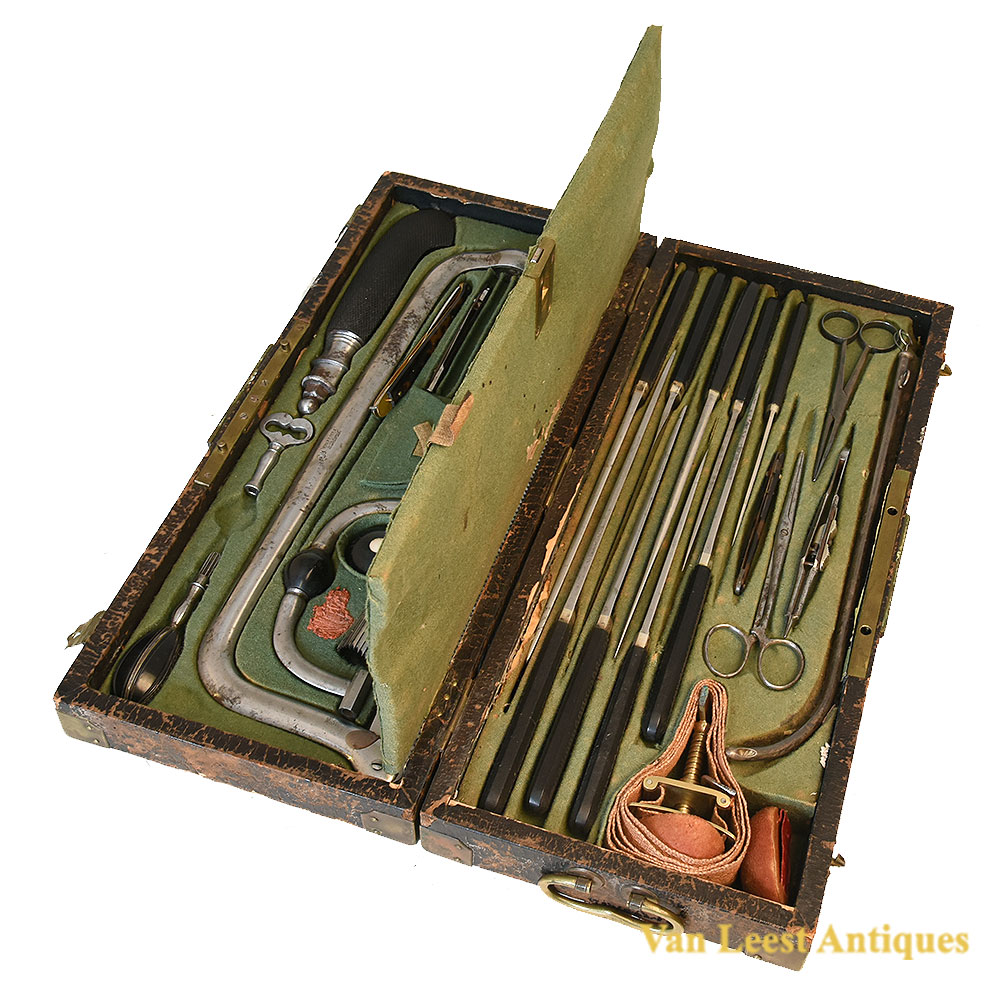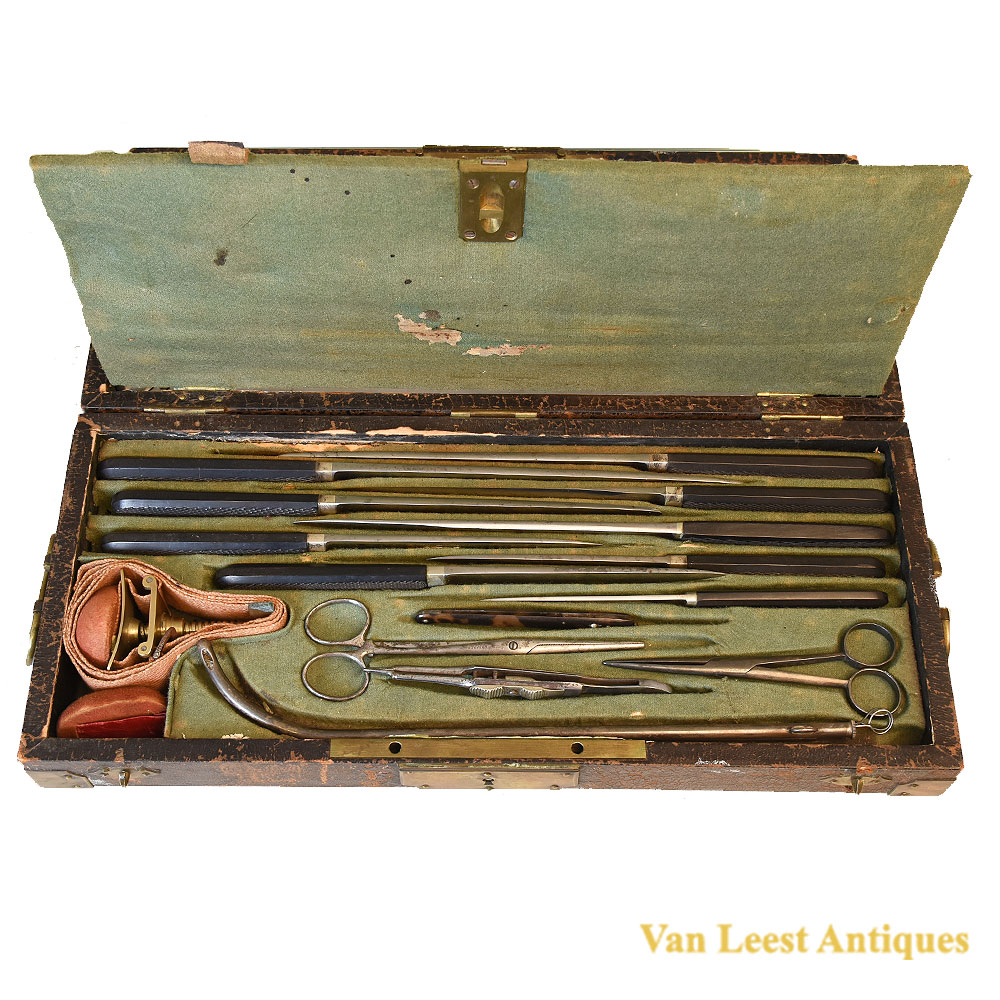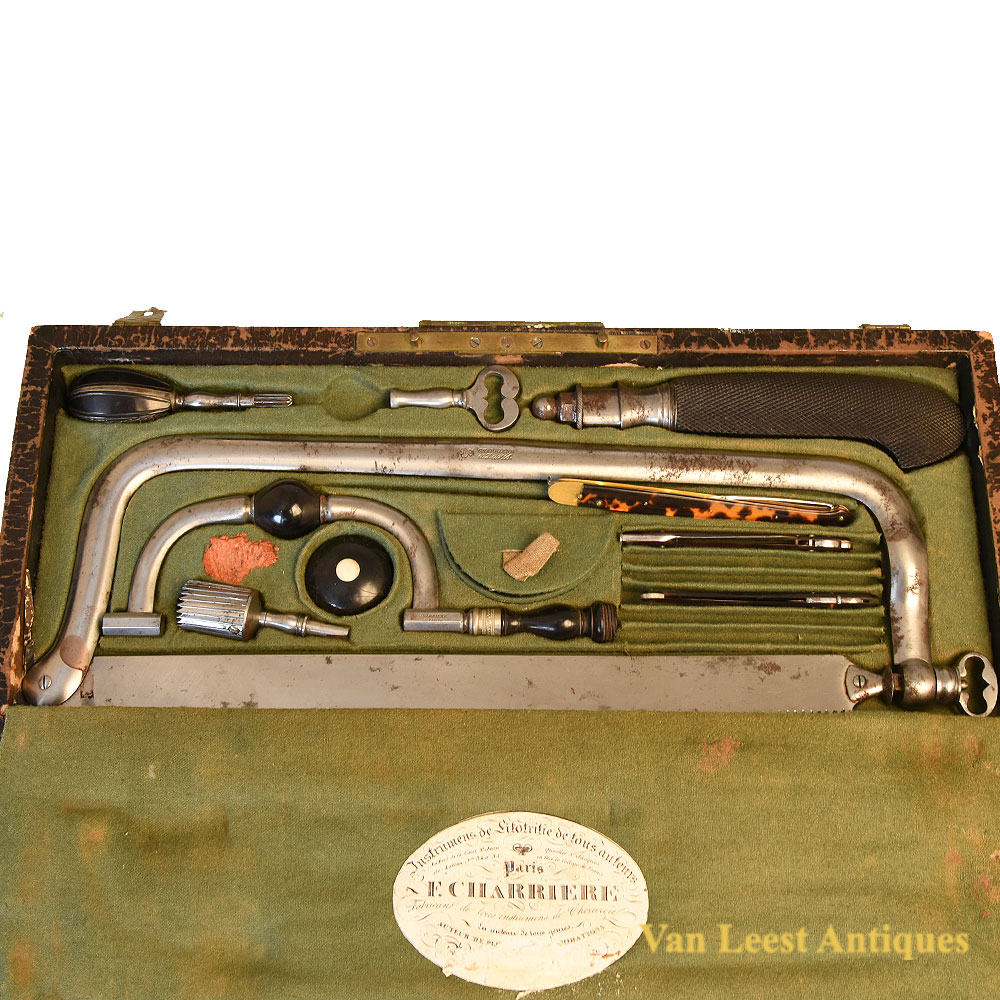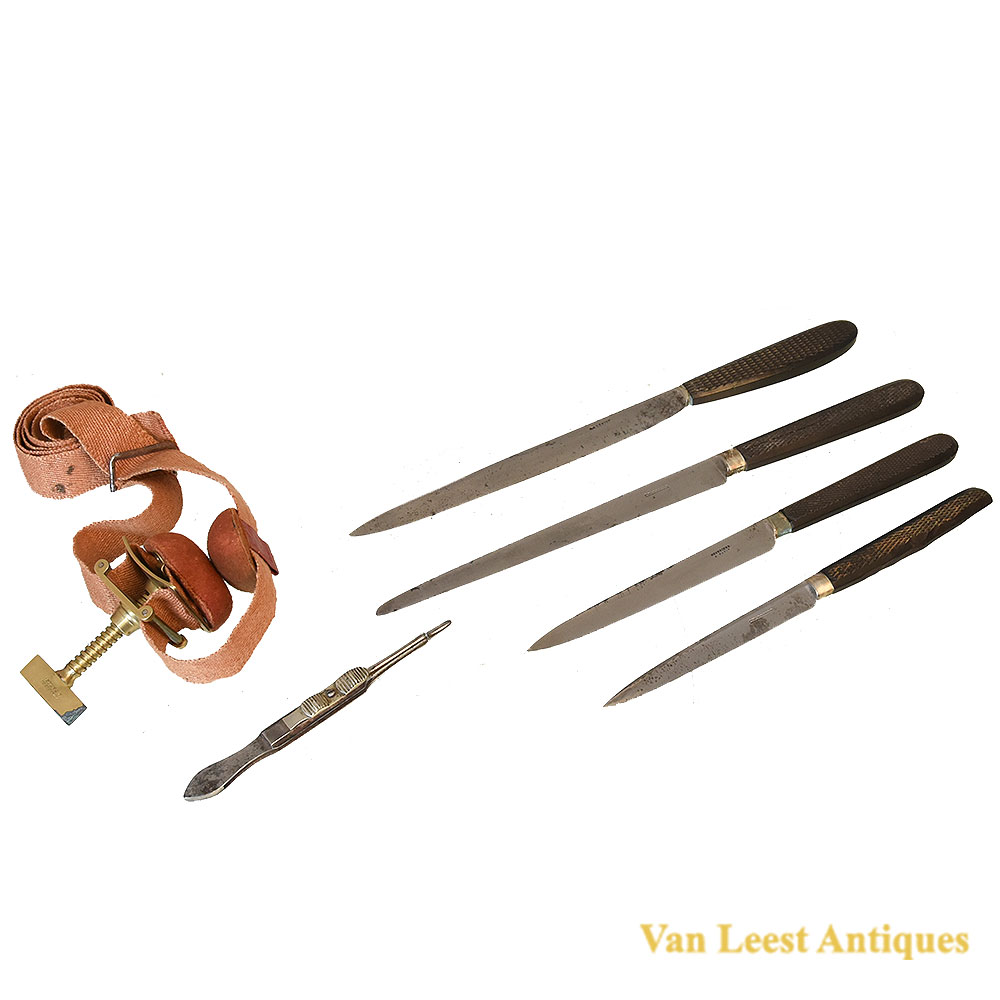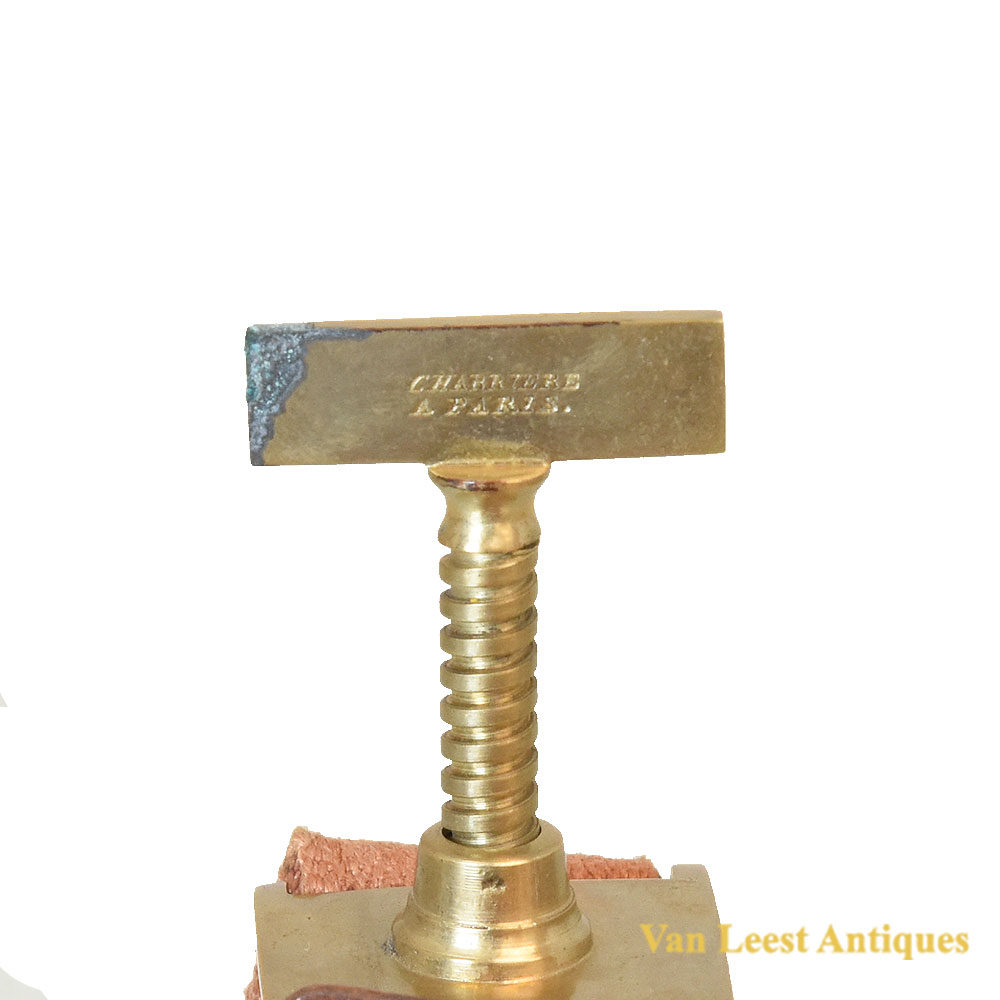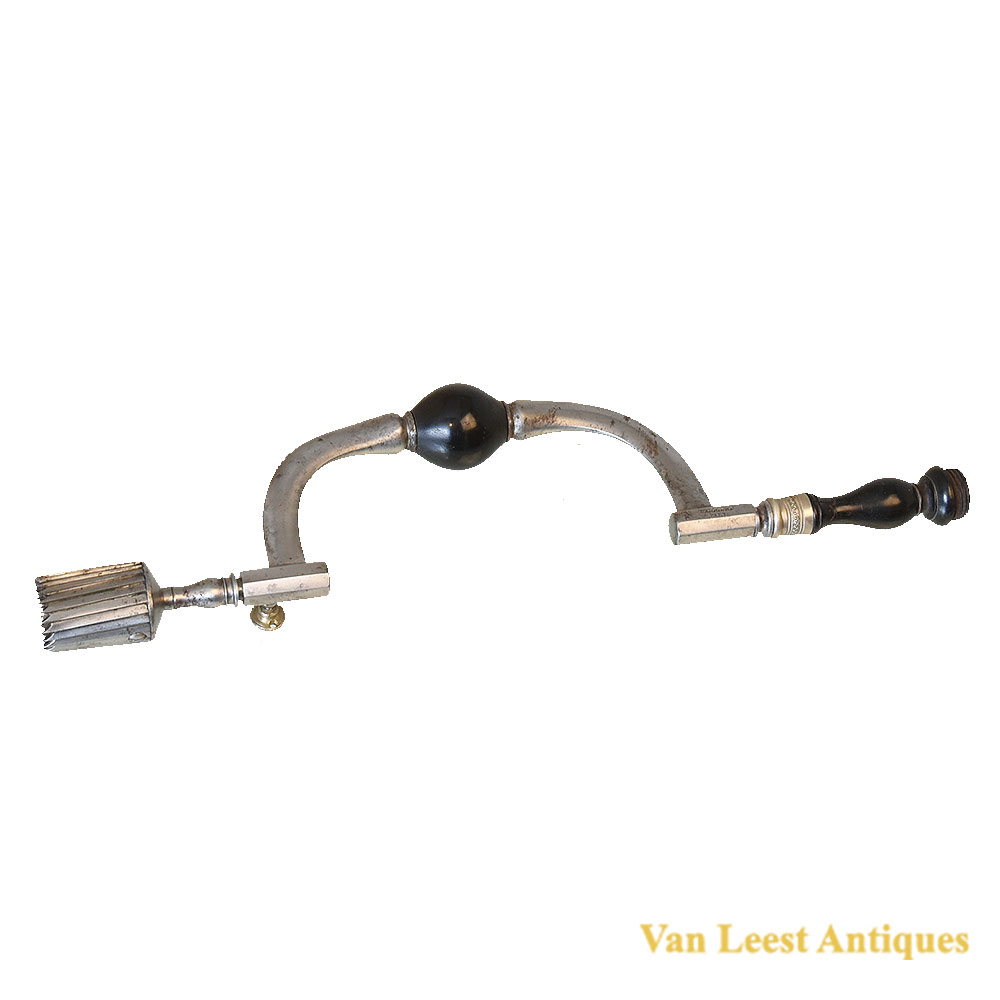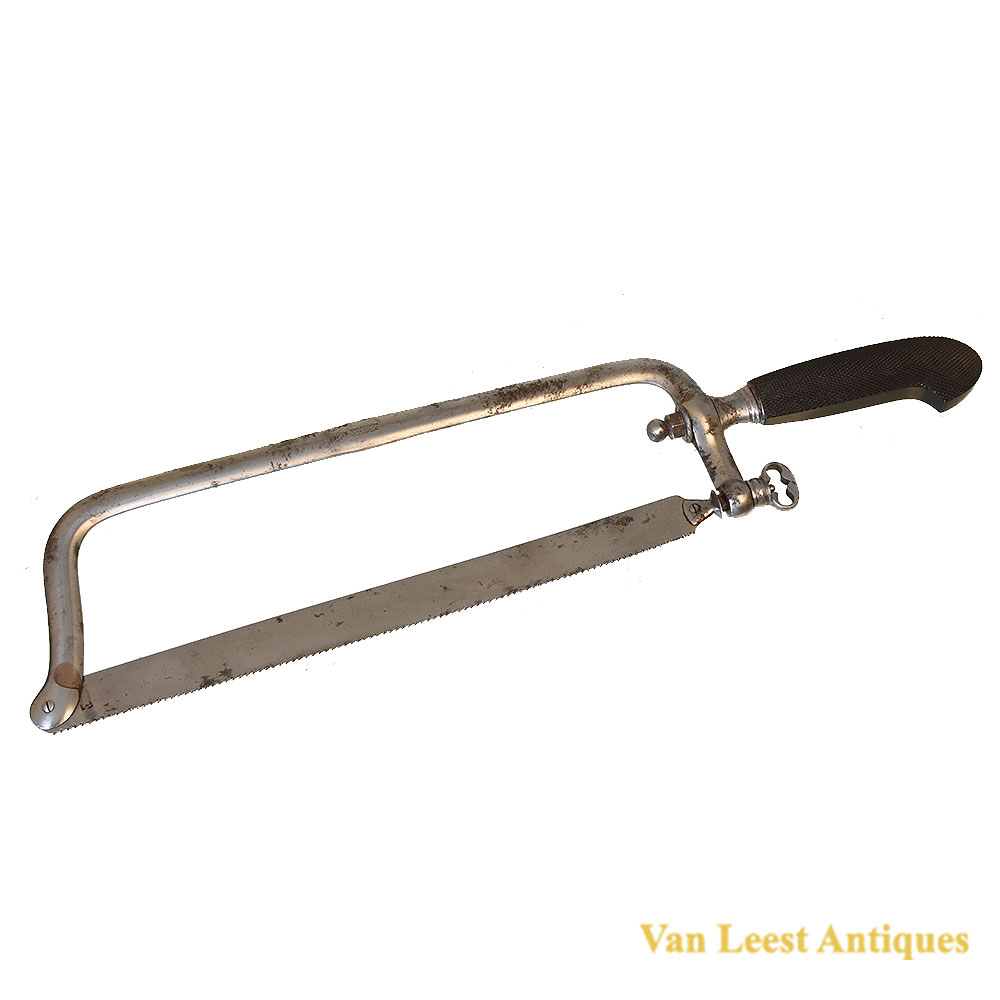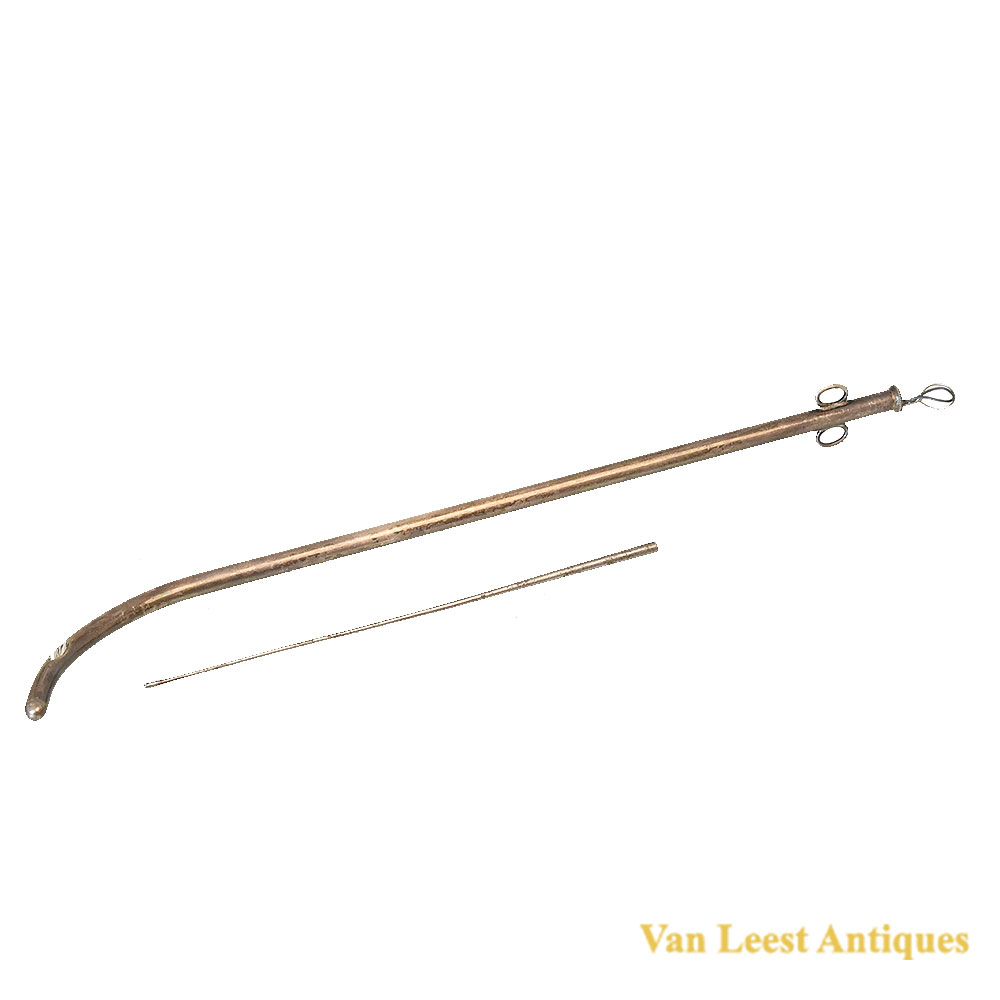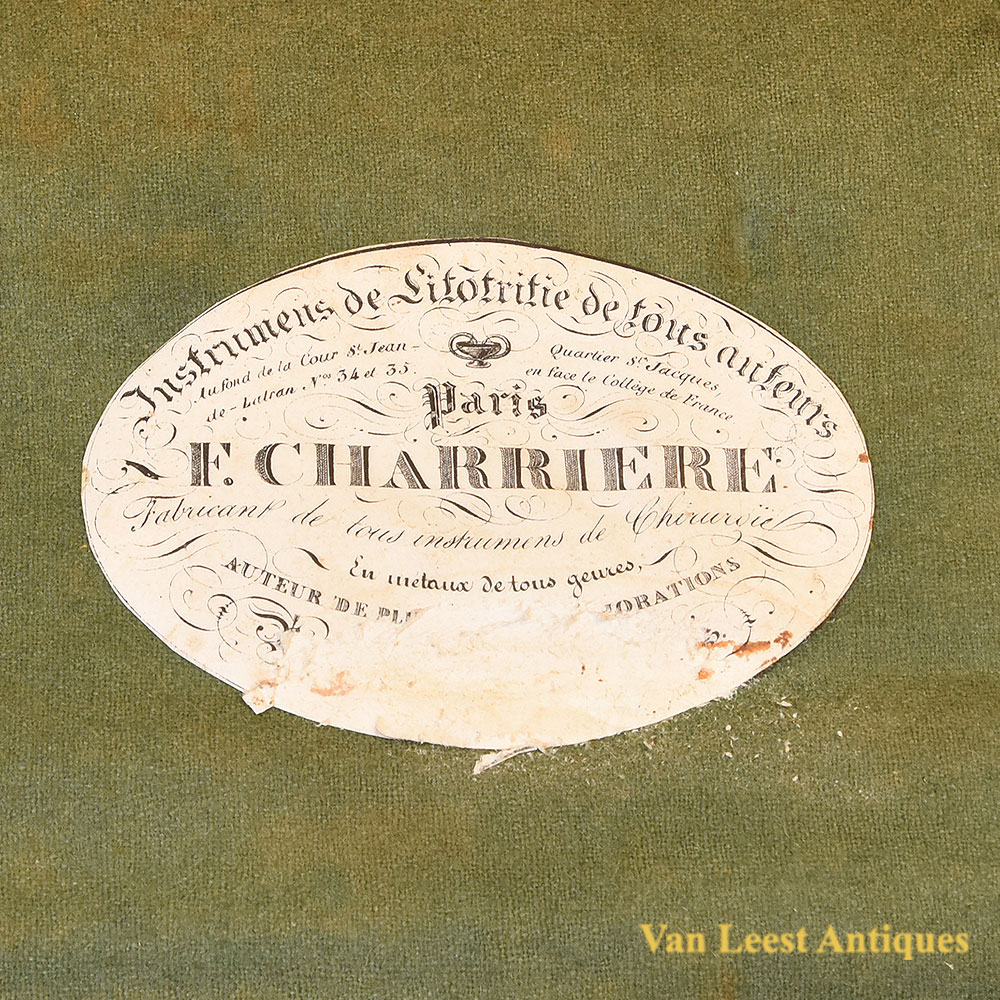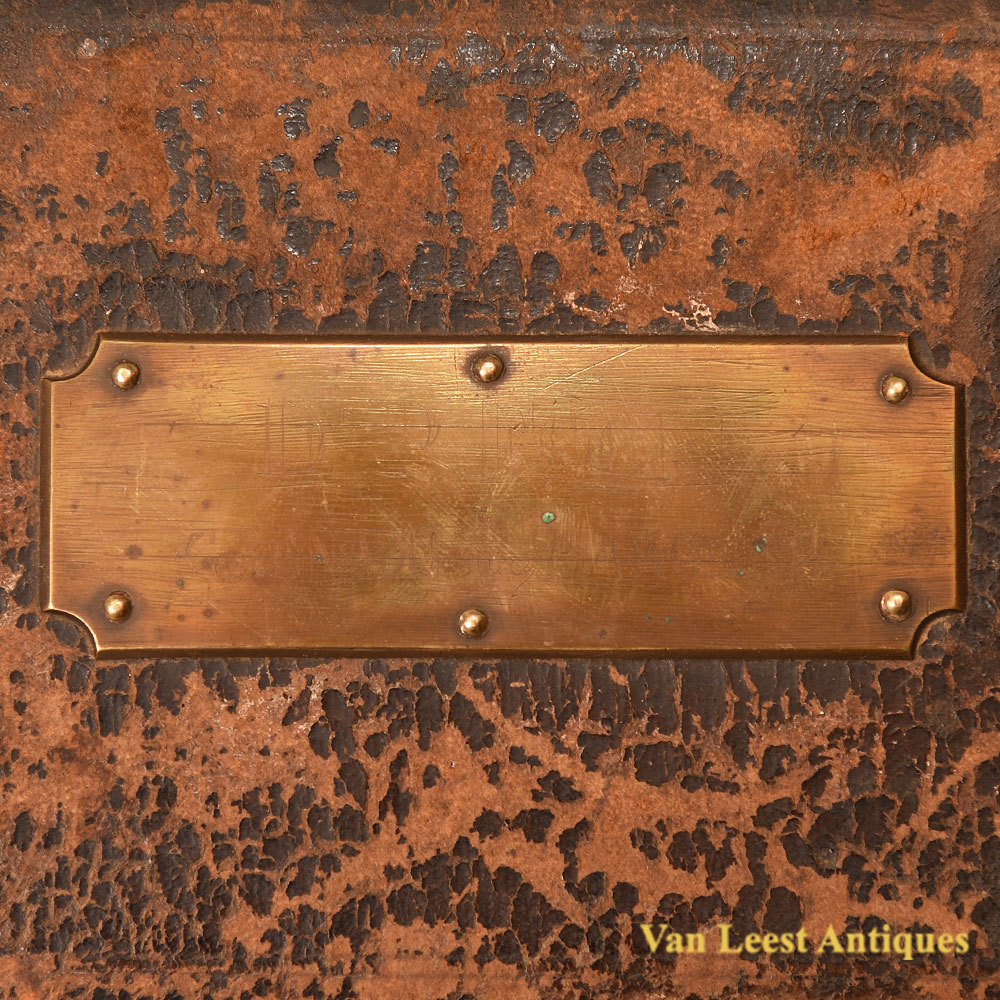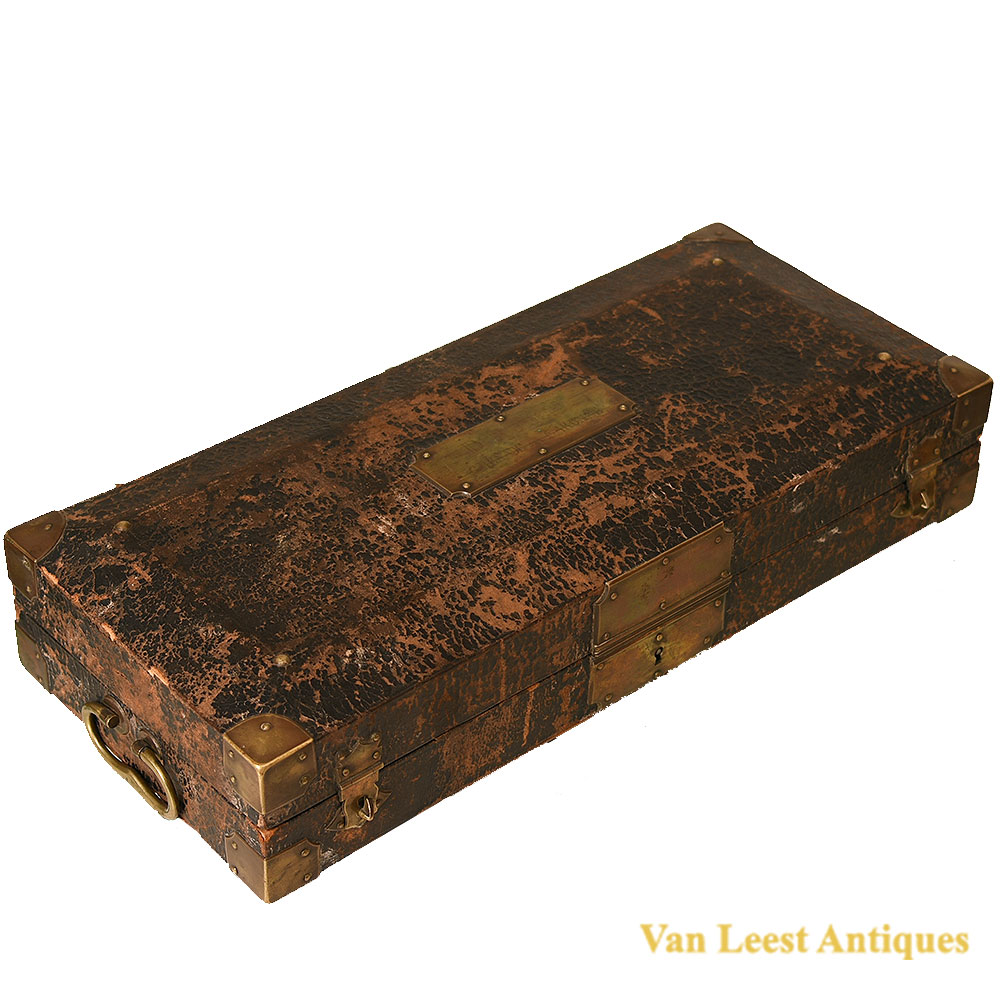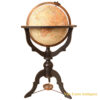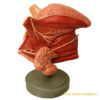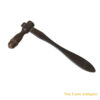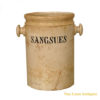Description
Surgical case Frédéric Charrière, Paris (1803-1876), the leading manufacturer of surgical instruments in the 19th century. He was the friend and supplier of Dupuytren and Civiale. It was he who turned his craft into an industry, the first as early as 1834. The first anaesthesia masks came out of his workshops in January 1847, and his establishment employed up to 450 workers, divided between the factories in Nogent (Haute-Marne) and the workshops, stores and offices in Paris. From 1834 to 1873, some fifteen gold and silver medals rewarded the exceptional quality of his instruments. Just as he was the first surgical cutler to receive a medal (see his cutler’s hallmark on the saw: the famous crowned double snake), he was the first industrialist to be named Chevalier de la Légion d’Honneur. This black leather-covered wooden case with brass corner reinforcements was made for Dr.P. Foch in Grenade/garonne. It contains twenty-one instruments, including nine amputation knives with engine-turned ebony handles, two pairs of scissors, one Petit-type tourniquet, one large bent silver cannula, a large three-part amputation saw with engine-turned ebony handle, a trephine with a turned ebony trephine and conscience, three retractable bistouries, one trephine shaft adjustment key.
Dimensions: 40 x18 x 9 cm.
Ask the Dealer
Dealer information
 Van Leest Antiques
Van Leest Antiques
Van Leest Antiques
Van Leest Antiques, based in Utrecht in the Netherlands, specialises in antique scientific and medical instruments. Their collection covers mainly scientific and medical antique instruments: barometers, globes and planataria, nautical instruments, anatomical models, and pharmacy items. Toon Van Leest travels regularly in Europe and visits trade fairs, auctions, and antique dealers to collect stock and to find pieces to fulfil his clients' unusual requests.
As well as being an avid antique collector and dealer, Toon Van Leest is also a dentist. He believes that antiques are a stable investment, not reliant on trends or fashion, and have truly lasting value. Above all, he says, antiques are timeless and never lose their beauty.



